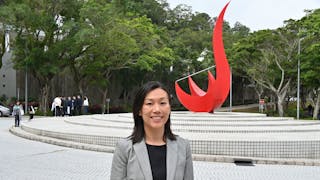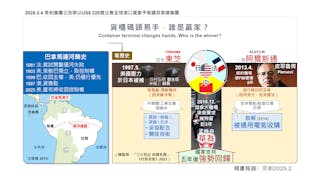近期內地演員王星被詐騙至緬甸KK園區一事受各界高度關注,更拔出蘿蔔帶出泥,媒體廣泛報道多宗發生於緬甸KK園區的詐騙勾當,揭發當地有組織犯罪集團從中國內地、香港、澳門詐騙受害人至泰國,並且綁架或誘拐至鄰近緬甸,進而強迫其在不人道的條件下工作的嚴重罪行。
根據已披露的信息,我們能夠描繪一幅來自中國大陸、香港、台灣甚至澳門跨境人口拐賣的新模式。
承諾在泰、台、日提供工作機會
首先,受害者透過社群媒體和網路被誘騙,有組織的犯罪分子機會向他們承諾在泰國、台灣或日本提供工作,一旦這些受害者到達泰國工作,他們將被綁架並轉移到緬甸東部的KK園區。一些案件顯示受害者在支付巨額贖金後獲釋;然而,支付贖金並不能保證他們會安全回來。
其次,後疫情時代中國大陸乃至香港經濟未見起色,一些淪為泰國、緬甸跨境人口販運集團獵物的受害人,天真地以為自己可以在泰國找到工作。由於泰國靠近緬甸東部,犯罪分子相對容易通過水路和陸路將受害者綁架至緬甸。

港人受更多教育 可協助高端詐騙
第三,有組織犯罪分子甚至透過支付前往泰國的機票費用來誘騙。一旦目標人物到達泰國,他們就會被綁架並轉移到KK園區工作。據報道,人口販運集團認為香港受害者受過更多教育,並安排他們從事較高技術含量的工作,例如處理資訊科技。
王星的案件揭露了跨國販運的運作。他透過微信交流,被騙到泰國一家大型娛樂公司工作。當他飛抵曼谷素萬那普機場,接待的娛樂公司職員將其誘騙至泰國西部的湄索。湄索位於泰國與緬甸邊境,與緬甸小鎮妙瓦底隔江相望,該鎮是電信和網絡詐騙的臭名昭著之地。
王星是幸運的,因為他的女友在中國大陸的社交媒體不斷分享王星失蹤事件,她的帖文獲多位名人關注和轉發,引起了中國駐泰國領事官員的注意,泰國警方迅速介入並且啟動營救行動。
澳門警方稱2024年9月至12月期間,有五名澳門人被綁架到緬甸KK園區工作,其中四人獲救,一人逃離詐騙集團並成功返回澳門。澳門警方呼籲澳門市民不要相信網路上陌生人的言論,尤其是那些呼籲澳門人到海外工作的言論。

港官赴泰了解受害港人個案
香港保安局副局長卓孝業率領專責小組代表團於1月14日前往泰國。同行的還有警方及入境處官員,卓孝業等人與泰國警方討論香港受害者案件。一名25歲港人獲救返港後,保全局長鄧克里斯對泰國政府的協助表示感謝。香港受害者向警方表示,如果他能從泰國帶珠寶到台灣,就可以得到12萬港元,但他一到泰國就被綁架到緬甸的一個KK園區。
2025年1月16日,中國外交部長王毅在北京會見東協國家十位大使,呼籲東南亞國家更重視跨國拐賣中國人的現象,希望有關國家負起責任,採取嚴厲措施打擊網絡詐騙,保護一般民眾的生命安全,保護中國公民和其他國家公民的利益。
詐騙集團高層是中國大陸人
一名被綁架但後來獲釋的台灣受害者透露,妙瓦底詐騙集團的高級成員是中國內地人。涉事地方亞泰市已發展成為賭博、詐騙等非法活動猖獗的地方。佘志江被批評為涉嫌販賣人口甚至器官的所謂KK園區的幕後主使之一。據報道,在亞泰市,有超過2萬隻大陸「豬仔」,即是那些落入KK園區手中的人質。
儘管佘志江已經被泰國當局逮捕,但他的餘孽和追隨者可能會重振詐騙園,進而使許多像奴隸一樣偷渡到那裏工作的中國人受害。
整體而言,王星案揭露了許多其他中國人透過前往泰國,被跨境拐賣到緬甸詐騙園區打工的案件。泰國當局迫切需要理清那些綁架中國遊客到妙瓦底KK園區工作的組織犯罪分子造成的混亂。
香港歌手陳奕迅取消了2月份在曼谷的演唱會,隨後許多中國人取消了前往泰國的訪遊和巡演,這對泰國旅遊業造成了巨大打擊。如果因跨境販運醜聞而損害泰國作為旅遊勝地的形象,那麼泰國政府和警方必須加快打擊涉及販運中國旅客的組織犯罪分子。此外,緬甸當局必須嚴厲打擊妙瓦底臭名昭著的KK園區,它已成為跨境販運的根源。
另一方面,除了跨境警務合作外,中國大陸、香港、澳門和台灣當局必須比以往任何時候都要對公民加強教育,避免其輕易透過社群媒體和關係被陌生人欺騙。為了更有效打擊跨境販運和跨國網路詐騙,必須採取泰國、緬甸和大中華地區的多種策略。
New patterns of cross-Border trafficking from Thailand to Myanmar
The recent revelation and rescue of mainland actor Wang Xing from a scam park in Myanmar have suddenly exposed other serious cases of cross-border trafficking from mainland China, Hong Kong, and Macau to Myanmar through Thailand where organized crime elements kidnapped the victims and brought them to work in Myanmar’s scam farms in unhuman conditions.
New patterns of cross-border trafficking of people from mainland China, Hong Kong, Taiwan and even Macau have been identified.
First, the victims were cheated through the social media and internet where organized crime elements promised them with jobs in Thailand, Taiwan or Japan, but once these victims arrived at Thailand, they were kidnapped and transferred to work in scam farms in eastern parts of Myanmar where their relatives were contacted and intimidated with ransoms. Some cases showed that the victims were released after huge ransoms were paid. Yet, paying ransoms could not necessarily guarantee their safe return.
Second, as the economy of mainland China and even Hong Kong has declined recently in the post-Covid era, some victims, who fell into the prey of cross-border trafficking syndicates in Thailand and Myanmar, naively believed that they could find jobs in Thailand, where its geographical proximity to eastern Myanmar through land and sea routes meant that they could be kidnapped relatively easily.
Third, elements of organized crime deceived the targets in Hong Kong even by paying for their air tickets to Thailand. Once the targets arrive at Thailand, they were kidnapped and transferred to work in scam farms. It was reported that trafficking syndicates see Hong Kong victims as more educated and that they deployed them to work in more advanced capacities, such as dealing with information technology.
Fourth, although the trafficking of mainland Chinese to Myanmar was not new, what is new is the cross-border trafficking to eastern Myanmar after the Myanmar military’s crackdown of the local warlords in northern Myanmar where a large number of mainland Chinese were kidnapped, exploited and eventually released and returned to mainland in 2024. In other words, the location of scam farms has changed from the northern areas to the eastern regions, where the Chinese police find it impossible to cross the border and penetrate the criminal syndicates, unlike northern Myanmar.
The case of 22-year-old Wang Xing revealed the operation of cross-border trafficking (The Guardian, January 14, 2025). He communicated with people on WeChat and was cheated to work for a major Thia entertainment firm. One Chinese “employee” of this firm greeted him at Bangkok’s Suvarnabhumi airport, where he was driven five hundred kilometres to Mae Sot in western Thailand. Mae Sot is located on the Thai border with Myanmar, just across the Burmese town named Myawaddy, which is a notorious place for telecommunication and online frauds.
Wang Xing’s predicament was lucky as his girlfriend used the social media in mainland China to highlight his disappearance. Her posts were shared and circulated by mainland celebrities in China, alerting the Chinese consular officials in Thailand and necessitating the intervention of the Thai police to rescue him quickly. Wang revealed that the working environment in Myawaddy was extremely dangerous as he could neither sleep not pee. Myawaddy is a convenient place for human trafficking and scam farms. Geographically, it relates to Bangkok through land and sea routes, thereby facilitating the process of human trafficking and hiding.
Following the Wang case, police cooperation between China and Thailand led to the rescue and release of twelve mainland Chinese, including a mainland Chinese male model who lost contacts for over 20 days (Sing Tao Daily, January 18, 2025).
The Wang Xing case also exposed twenty-eight cases of Hong Kong people whose family members requested the assistance of the Hong Kong government (Oriental Daily, January 16, 2025). They were also the victims of human trafficking to Myanmar. The Hong Kong government said that from August 2024 to January 2025, sixteen of the twenty-eight cases got released, but eleven people are still in Myanmar and one case is in Cambodia. Two women who were released told the Hong Kong police that they were acquainted with a woman in Hong Kong and she provided free air tickets for them to join a tour in Thailand in late December. But after the two arrived at Thailand, they were sent to a scam farm after 10 hours of land and sea transport. The relatives of the two kidnapped women paid ransom for their eventual release. The law-enforcement authorities in Hong Kong arrested one Hong Kong woman for allegedly cheating two other women to go to Thailand.
According to the Macau police, five Macau people were kidnapped to work in Myanmar’s scam farm between September and December 2024. Four of them were rescued and one escaped from the scam syndicate and succeeded in returning to Macau. The Macau police appealed to the Macau citizens that they should not trust the remarks of strangers on the Internet, especially those appealing to Macau people to work in overseas countries (Jornal San Wa Ou, January 13, 2025).
A delegation led by the Deputy Secretary for Security, Michael Cheuk, together with officials from the police and immigration departments, went to Thailand on January 14 to discuss with the Thai police on the cases of Hong Kong victims. After a 25-year-old Hong Kong person was rescued and returned to Hong Kong, the Secretary for Security Chris Tang expressed his gratitude to the Thai government for its assistance. The Hong Kong victim told the police that he was promised to be offered HK$120,000 if he could bring jewellery from Thailand to Taiwan, but he was kidnapped to a scam farm in Myanmar once he arrived at Thailand (Wen Wei Po, January 17, 2025).
On January 16, 2025, the Chinese Foreign Minister Wang Yi met ten ambassadors of ASEAN countries in Beijing, and he appealed to Southeast Asian countries to be more concerned about the phenomenon of cross-border trafficking of the Chinese people. He hoped that the countries concerned would take the responsibility of adopting stringent measures to combat online scamming, to protect the lives of ordinary people, and to protect the interest of not only the Chinese citizens but also the citizens of other countries.
On January 16, it was reported that the Karen Border Guard Force announced a crackdown of scam operations after its meeting with the Democratic Karen Benevolent Army and local Chinese businesspeople. The Karen Border Guard Force’s leader Colonel Saw Chit Thu, has close relations with the Myanmar military. He vowed to stamp out human trafficking and other criminal activities (see: Revealing founder of Myawaddy’s Yatai City: She Zhijiang’s two-faced life poisons Chinese ‘piglets’ – China – 點新聞-dotdotnews). It seems that the Myanmar authorities told Colonel Saw to clamp down on the scam parks that victimized many Chinese people.
On January 17, the Global Times reported that after the Wang Xing case, public security authorities are now investigating a human trafficking criminal syndicate based in Myawaddy. This syndicate has lured the Chinese people to work there since December 2024.
A kidnapped but later released Taiwan victim unveiled that the high-ranking members of the scam syndicate in Myawaddy are mainland Chinese (Oriental Daily, January 18, 2025). In fact, it was reported that the founder of Myawaddy’s Yatai City, which has a large scam compound, is She Zhijiang, a mainland Chinese who was born in Hunan, who had Cambodian citizenship in 2017 and who was arrested in Thailand in August 2022 on suspicion of operating illegal cross-border gambling. The Yatai City has developed into a place where gambling, scams and other illicit activities persist. She Zhijiang has been criticized as one of the possible masterminds behind the so-called “KK park” which has been involved in human and even organ trafficking (See: Revealing founder of Myawaddy’s Yatai City: She Zhijiang’s two-faced life poisons Chinese ‘piglets’ – China – 點新聞-dotdotnews). It was reported that in Yatai City, there are over 20,000 mainland Chinese “piglets,” which refers to those people who fell into the hands of scam and fraud factories.
Although She Zhijiang was already arrested by the Thai authorities, his remnants and followers might have revitalized the scam parks, thereby victimizing many Chinese people who were smuggled to work there like slaves.
Overall, the Wang Xing case exposed many other cases of the cross-border trafficking of the Chinese people to work in Myanmar’s scam parks through their visits to Thailand. It is urgent for Thai authorities to clean up the mess involving those organized crime elements who kidnapped Chinese visitors to work in Myawaddy’s scam farms. The Hong Kong singer Eason Chan cancelled his concert in Bangkok in February, followed by many Chinese who cancelled their visits and tours to Thailand – a huge blow to Thailand’s tourism immediately. If Thailand’s image as a tourism hub has been undermined by the cross-border trafficking scandal, its government and police must speed up the process of combatting organized crime elements that involved in trafficking of Chinese visitors, including those from mainland China, Hong Kong, Macau and Taiwan. Moreover, the Myanmar authorities must crack down on the notorious scam parks in Myawaddy, which has emerged as the ultimate source of cross-border trafficking. On the other hand, apart from cross-border police cooperation, the authorities in mainland China, Hong Kong, Macau and Taiwan must educate their citizens more than ever before on the necessity of preventing themselves from being easily deceived by strangers through social media and connections. These multiple strategies from Thailand, Myanmar and the Greater China regions must be adopted for the sake of combating cross-border trafficking and transnational online scams more effectively.
原刊於澳門新聞通訊社(MNA)網站,本社獲作者授權轉載。(原文按此)






































